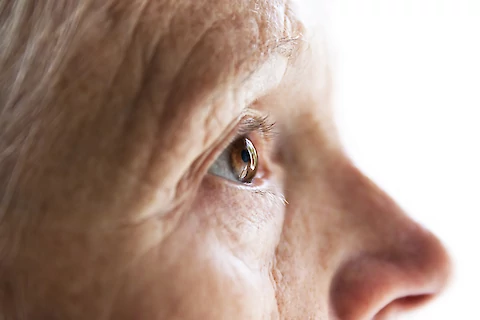
How Often Should Seniors Get Their Eyes Checked? And 6 Other Tips for Senior Eye Health
Everyone has some risk of developing eye health problems. That means seniors need regular checks from optometrists. The American Optometric Association recommends that seniors get a review annually or every two years. They also recommend starting early and more frequent visits if you take certain medications, drink alcohol, or smoke. The earlier seniors catch vision issues like cataracts, glaucoma, macular degeneration, and diabetes, the less likely they will become serious health concerns.
Seniors may get recommendations for an annual exam, where their eyesight gets checked by a doctor for abnormalities or changes. Ophthalmologists may examine the inside and outside of the eyeballs, looking for early signs of disease, infection, or injury. They might prescribe eyeglasses or contact lenses to correct vision problems.
What Are Some Ways Seniors Can Protect Their Eye Health Against Damage?
- Seniors Should Wear Safety Glasses When Working Or Playing Sports
The first defense for your eyes should be safety glasses. Seniors should wear eye protection when working around dangerous machinery or sports equipment. Additionally, they should always wash their hands before touching their eyes.
- The Elderly Should Constantly Hydrate
Drinking plenty of water helps prevent dryness, wrinkles, and eye fatigue. Being dehydrated makes the eyes less able to focus. It also slows down blood flow to the brain, resulting in headaches and dizziness. Water helps keep the body cool and lubricated and keeps the optic nerve healthy.
- Seniors Should Eat Right
Eating nutritious foods supports the immune system, keeping the eyes healthy. Foods rich in zinc, vitamin C, selenium, and lutein are necessary for maintaining healthy vision. Green leafy vegetables, beans, nuts, seeds, whole grains, fish, poultry, olive oil, tomato products, and dairy are nutritious food choices.
- Senior Loved Ones Should Wear Sunglasses
Direct sun is harmful to the eyes. It may cause damage and age them faster. However, sunglasses can protect the eyes from UV rays. Seniors should have a good pair of prescription glasses if they wear contacts. If they usually don't wear glasses, get them fitted for new ones before the summer months hit.
- The Elderly Should Avoid Glare
Glare from reflection off bright surfaces such as windows or polished metal can cause temporary eye strain or irritation. It is best if seniors don't look directly at something bright like the sun. To avoid glare, they should look away whenever possible and turn off your monitor or television at least two hours before bedtime. A screen saver or dimming feature helps reduce the amount of blue light emitted by LEDs.
- Senior Loved Ones Should Reduce Stress
Stress affects both mind and body. Over time, chronic stress may harm the eyes. Relaxation techniques may help reduce stress for seniors. They should talk to family members, friends, and healthcare professionals if they experience any signs of trouble seeing, even if the problems seem minor.
Get Personalised Care for Your Senior Loved Ones
Regular checkups help reduce the risk of cataracts and glaucoma and can prevent irreversible damage. Our mission at Senior Helpers Salem, OR is to provide compassionate, personalized senior care services to seniors and their families at home or in assisted living facilities. We believe that our seniors should have access to the highest quality eye health care.
At Senior Helpers Salem, we put our clients first and serve Salem, Dallas, Keizer, Albany, and Corvallis. Our caregivers will take excellent care of your senior loved ones while making sure they guide them to protect their eyes from damage. Contact us at (503) 990-7112 to get caregiving services for your elderly loved ones.